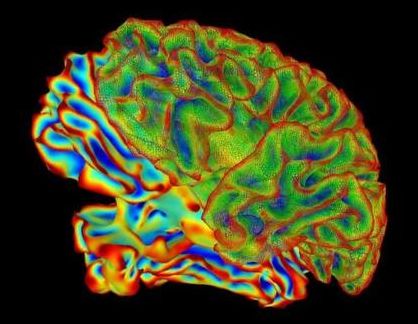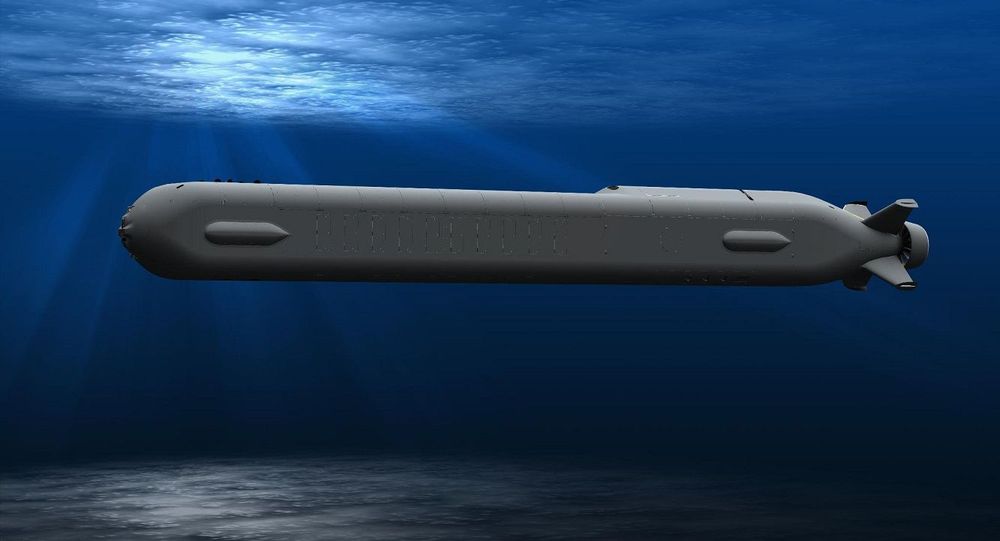Mmm, 👍
Reykjanes peninsula’s last active period started in 10th century and lasted 300 years.

Mmm, 👍
Reykjanes peninsula’s last active period started in 10th century and lasted 300 years.

Germany has broken another renewable energy record but officials say there’s still room for improvement. The German Renewable Energy Federation (BEE) reported Sunday that the combined share of renewable energy in the electricity, transport and heating sectors was 15.2 percent in the first half of 2017, up from 14.8 percent during the same period last year.
For the electricity sector alone, renewables supplied a record 35 percent of the country’s power in the first six months of 2017, about a 2 percent increase from 2016’s numbers. To compare, renewables accounted for only 15 percent of the United States’ total electricity generation in 2016.
Despite the new benchmark, BEE acting managing director Harald Uphoff told DW that Germany’s transition to clean energy across all sectors is not happening fast enough. The BEE report showed that renewables provided only 5.1 percent of energy consumed in the transport sector and 13.6 percent in heating.

TSUNAMI WARNING NEAR JAPAN, PLEASE TAG YOUR JAPANESE FRIEND O 👍👀
The Philippine Sea plate is bordered by the larger Pacific and Eurasia plates and the smaller Sunda plate. The Philippine Sea plate is unusual in that its borders are nearly all zones of plate convergence. The Pacific plate is subducted into the mantle, south of Japan, beneath the Izu-Bonin and Mariana island arcs, which extend more than 3,000 km along the eastern margin of the Philippine Sea plate. This subduction zone is characterized by rapid plate convergence and high-level seismicity extending to depths of over 600 km. In spite of this extensive zone of plate convergence, the plate interface has been associated with few great (M8.0) ‘megathrust’ earthquakes. This low seismic energy release is thought to result from weak coupling along the plate interface (Scholz and Campos, 1995). These convergent plate margins are also associated with unusual zones of back-arc extension (along with resulting seismic activity) that decouple the volcanic island arcs from the remainder of the Philippine Sea Plate (Karig et al., 1978; Klaus et al., 1992).
South of the Mariana arc, the Pacific plate is subducted beneath the Yap Islands along the Yap trench. The long zone of Pacific plate subduction at the eastern margin of the Philippine Sea Plate is responsible for the generation of the deep Izu-Bonin, Mariana, and Yap trenches as well as parallel chains of islands and volcanoes, typical of circum-pacific island arcs. Similarly, the northwestern margin of the Philippine Sea plate is subducting beneath the Eurasia plate along a convergent zone, extending from southern Honshu to the northeastern coast of Taiwan, manifested by the Ryukyu Islands and the Nansei-Shoto (Ryukyu) trench. The Ryukyu Subduction Zone is associated with a similar zone of back-arc extension, the Okinawa Trough. At Taiwan, the plate boundary is characterized by a zone of arc-continent collision, whereby the northern end of the Luzon island arc is colliding with the buoyant crust of the Eurasia continental margin offshore China.
Along its western margin, the Philippine Sea plate is associated with a zone of oblique convergence with the Sunda Plate. This highly active convergent plate boundary extends along both sides the Philippine Islands, from Luzon in the north to the Celebes Islands in the south. The tectonic setting of the Philippines is unusual in several respects: it is characterized by opposite-facing subduction systems on its east and west sides; the archipelago is cut by a major transform fault, the Philippine Fault; and the arc complex itself is marked by active volcanism, faulting, and high seismic activity. Subduction of the Philippine Sea Plate occurs at the eastern margin of the archipelago along the Philippine Trench and its northern extension, the East Luzon Trough. The East Luzon Trough is thought to be an unusual example of a subduction zone in the process of formation, as the Philippine Trench system gradually extends northward (Hamburger et al., 1983).


I rarely use the words transformative or breakthrough for neuroscience findings. The brain is complex, noisy, chaotic, and often unpredictable. One intriguing result under one condition may soon fail for a majority of others. What’s more, paradigm-shifting research trends often require revolutionary tools. When we’re lucky, those come once a decade.
But I can unabashedly say that the 2010s saw a boom in neuroscience breakthroughs that transformed the field and will resonate long into the upcoming decade.
In 2010, the idea that we’d be able to read minds, help paralyzed people walk again, incept memories, or have multi-layered brain atlases was near incomprehensible. Few predicted that deep learning, an AI model loosely inspired by neural processing in the brain, would gain prominence and feed back into decoding the brain. Around 2011, I asked a now-prominent AI researcher if we could automatically detect dying neurons in a microscope image using deep neural nets; we couldn’t get it to work. Today, AI is readily helping read, write, and map the brain.

Graphene hematene batteries eternal sea power.
What’s better than an underwater drone? An underwater drone that can remain at sea forever, or at least for long periods.
By Michael Peck

The ESA probe BepiColombo flew past Earth on the way to Mercury. The probe launched in 2018 and made the last visit of our home before continuing onward to the final destination. The spacecraft needs to shed velocity to arrive at Mercury in 2025 at a velocity to enter orbit. The spacecraft will make multiple additional planetary flybys of Venus and Mercury to slow down to enter orbit.
In space travel, mission planners need to balance mission resources. The amount of fuel required to either speed up or slow down a spacecraft greatly impacts the cost of the mission. Using a longer flight path can reduce the propellent requirements for a mission but the mission will take longer. Gravity assists can, therefore, allow a spacecraft to be launched on a cheaper, less powerful rocket.
Gravity assist flyby?
A Gravity assist flyby has other names including a gravitational slingshot, gravity assist maneuver, or swing-by. Gravity assistance maneuvers increase or decrease its speed or redirect the orbital path. The spacecraft slingshots around another object with a gravitational field and transfers some of the energy during that slingshot. In the case of BepiColombo, the spacecraft needs to slow down to be captured by Mercury…

Working around the clock for two weeks, a large team of Stanford Medicine scientists has developed a test to detect antibodies against the novel coronavirus, SARS-CoV-2, in blood samples.
In contrast to current diagnostic tests for COVID-19, which detect genetic material from the virus in respiratory secretions, this test looks for antibodies to the virus in plasma, the liquid in blood, to provide information about a person’s immune response to an infection.
The test was launched April 6 at Stanford Health Care. It differs from an externally developed test that Stanford researchers used for a prevalence study during recent community screening events.

Error free qubits o.,o.
Physicists at MIT and elsewhere have observed evidence of Majorana fermions—particles that are theorized to also be their own antiparticle—on the surface of a common metal: gold. This is the first sighting of Majorana fermions on a platform that can potentially be scaled up. The results, published in the Proceedings of the National Academy of Sciences, are a major step toward isolating the particles as stable, error-proof qubits for quantum computing.
In particle physics, fermions are a class of elementary particles that includes electrons, protons, neutrons, and quarks, all of which make up the building blocks of matter. For the most part, these particles are considered Dirac fermions, after the English physicist Paul Dirac, who first predicted that all fermionic fundamental particles should have a counterpart, somewhere in the universe, in the form of an antiparticle—essentially, an identical twin of opposite charge.
In 1937, the Italian theoretical physicist Ettore Majorana extended Dirac’s theory, predicting that among fermions, there should be some particles, since named Majorana fermions, that are indistinguishable from their antiparticles. Mysteriously, the physicist disappeared during a ferry trip off the Italian coast just a year after making his prediction. Scientists have been looking for Majorana’s enigmatic particle ever since. It has been suggested, but not proven, that the neutrino may be a Majorana particle. On the other hand, theorists have predicted that Majorana fermions may also exist in solids under special conditions.
New hope for stroke patients as scientists find way to restore mobility and touch using human stem cells to recreate nerve connections in damaged rat brain…
Scientists have found a way to restore mobility and touch in rats after a stroke using human stem cells to recreate nerve connections in damaged brains — offering patients a new hope.
The study — conducted on rats — showed that the new cells could repair the damage caused by a stroke within six months of being transplanted into the brain.
However, the researchers caution that there is much work to be done before the procedure can be considered suitable and safe to try in human patients.